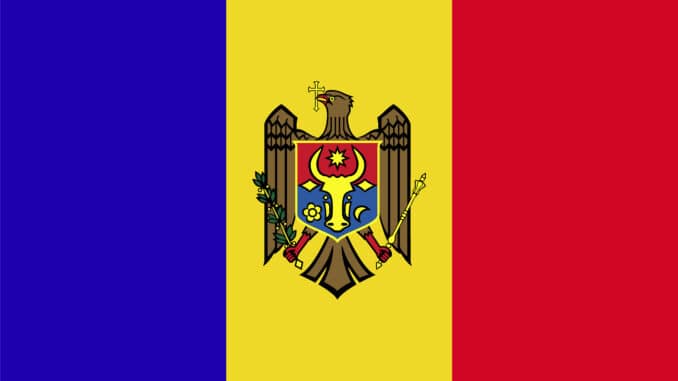
Blue, yellow, and red are some of the most common colors used in international flags. The following countries’ flags use combinations of blue, red, and yellow, either in a simple way – such as Romania’s three vertical stripes – or adorned with a seal, such as Armenia.
- Andorra
- Armenia
- Chad
- Colombia
- Democratic Republic of Congo (DRC)
- Ecuador
- Kiribati
- Moldova
- Mongolia
- Romania
- Venezuela
Read on to learn more about each of these countries and the stories behind their unique flags.
Countries with Blue, Yellow, and Red Flags
The flags listed below include only those countries with flags using the primary colors of blue, red, and yellow. Some have a seal which may include miniscule amounts of other colors, while others may include small amounts of white.
Flags of countries that utilize any other color in their flag – such as green, black, or orange – have been excluded from this list, regardless of whether they also use red, yellow, and blue.
1. Andorra
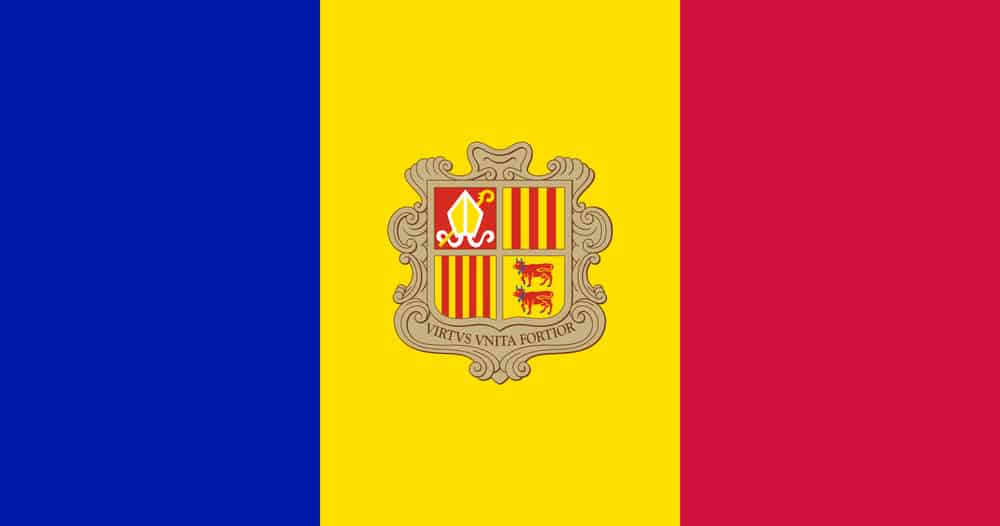
The first entry on our list is the micronation of Andorra – a small landlocked European country located in the Pyrenees Mountains with France to the north and Spain to the south.
Andorra’s flag is composed of three vertical stripes: blue at the left, yellow in the middle, and red to the right. Andorra’s official seal sits squarely in the center of the flag against the yellow section.
2. Armenia
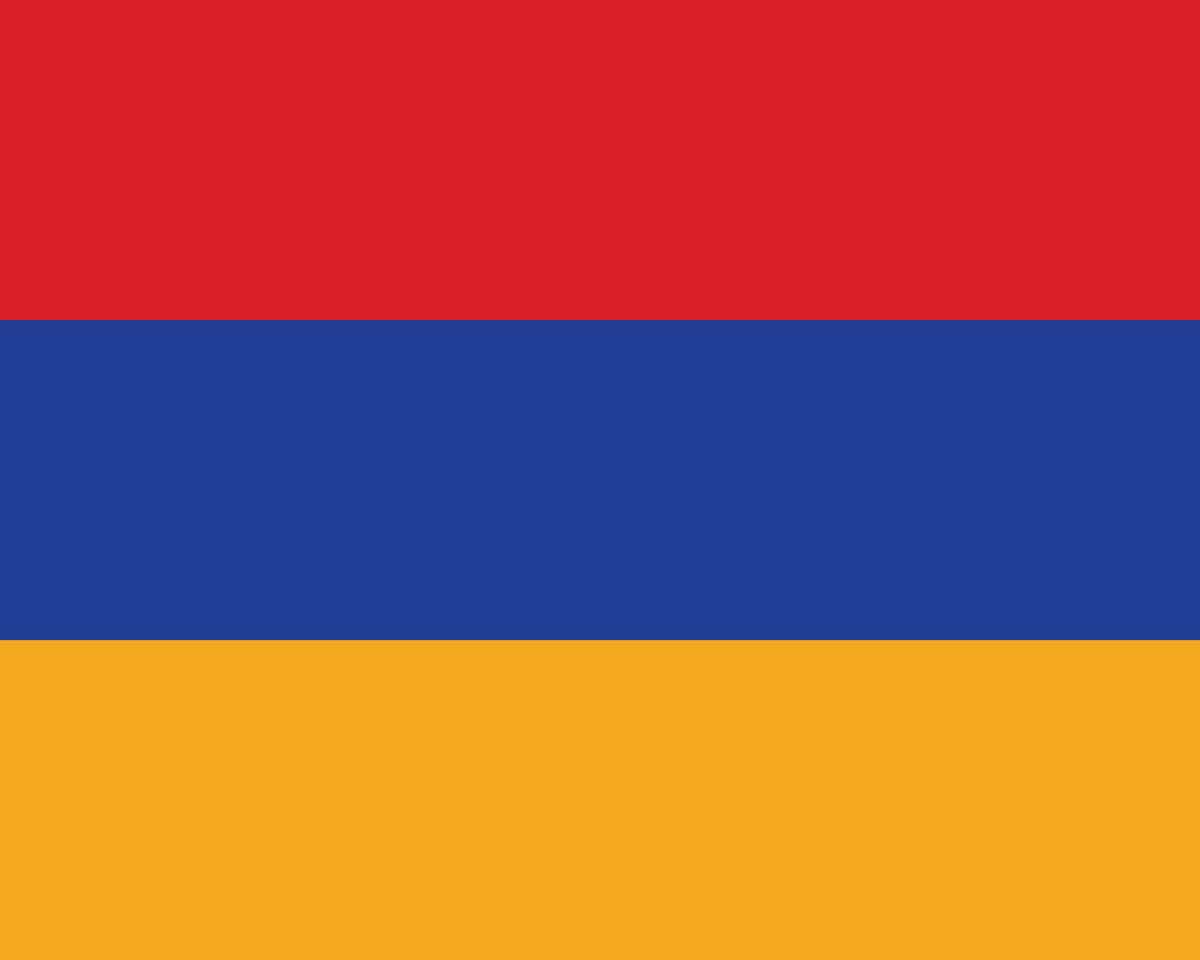
This landlocked country located in the mountainous Caucasus region of the Middle East is bordered by Turkey to the west, Georgia to the north, Azerbaijan to the east, and Iran to the south.
Armenia’s flag is simple, composed of three horizontal stripes of equal width without any additional adornment: red at the top, blue in the middle, and yellow at the bottom.
3. Chad
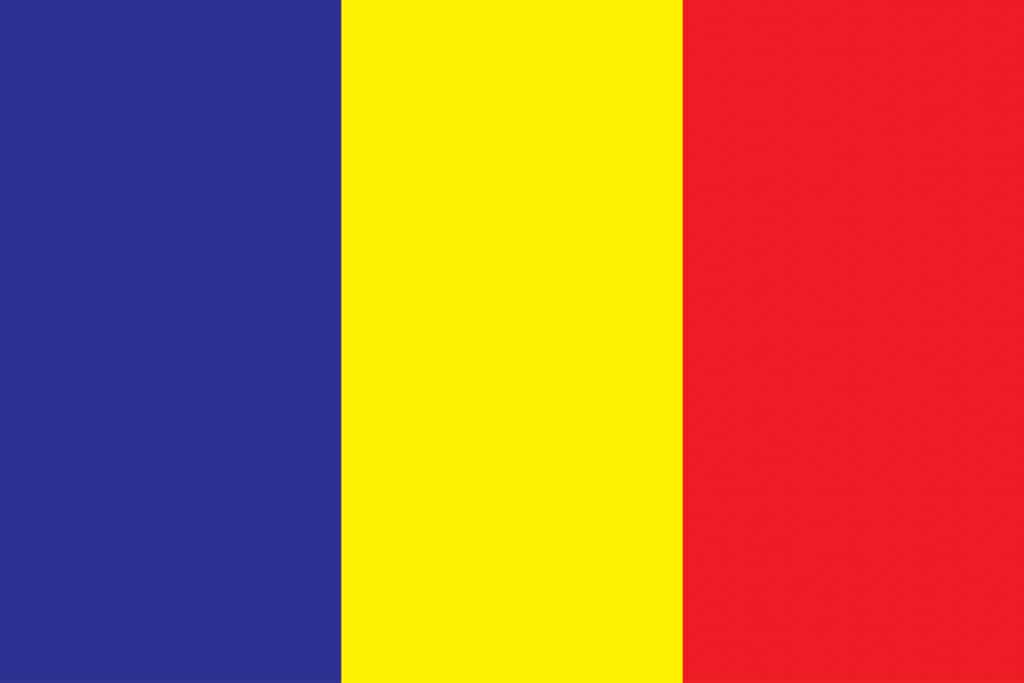
Located in north-central Africa, this large country has two official languages – French and Arabic. It is landlocked, with Libya to the north and flanked by Sudan and Niger to the east and west, respectively.
Chad’s flag is composed of three vertical lines of equal width: blue to the left, yellow in the middle, and red to the right. The exact same color composition is used in Andorra’s flag, the only difference between the two being the seal distinguishing Andorra’s flag from Chad’s unadorned flag.
4. Colombia
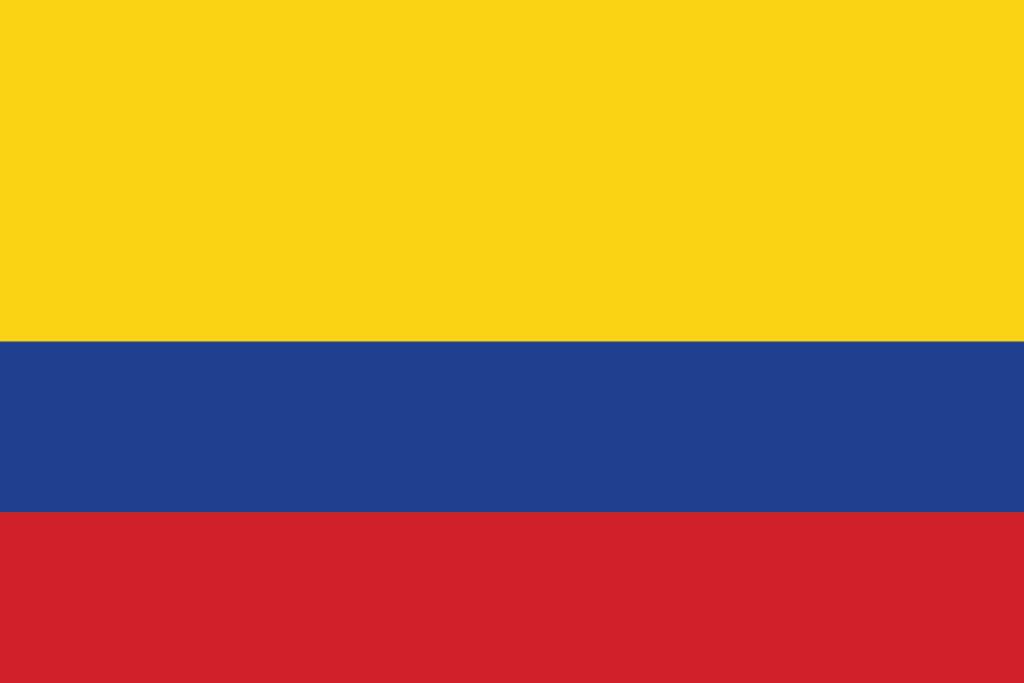
This large, coastal nation lies at the northern coast of South America, bordering the Caribbean Sea. Full of tropical forests, Colombia has the second-highest level of biodiversity in the world and is one of only seventeen megadiverse countries – a group of nations harboring the majority of Earth’s flora and fauna species.
Colombia’s flag has three horizontal stripes, with the top yellow stripe encompassing the top half of the flag with blue and red making up the bottom half, the blue and red stripes each making up one-quarter of the flag’s total space.
5. Democratic Republic of the Congo (DRC)
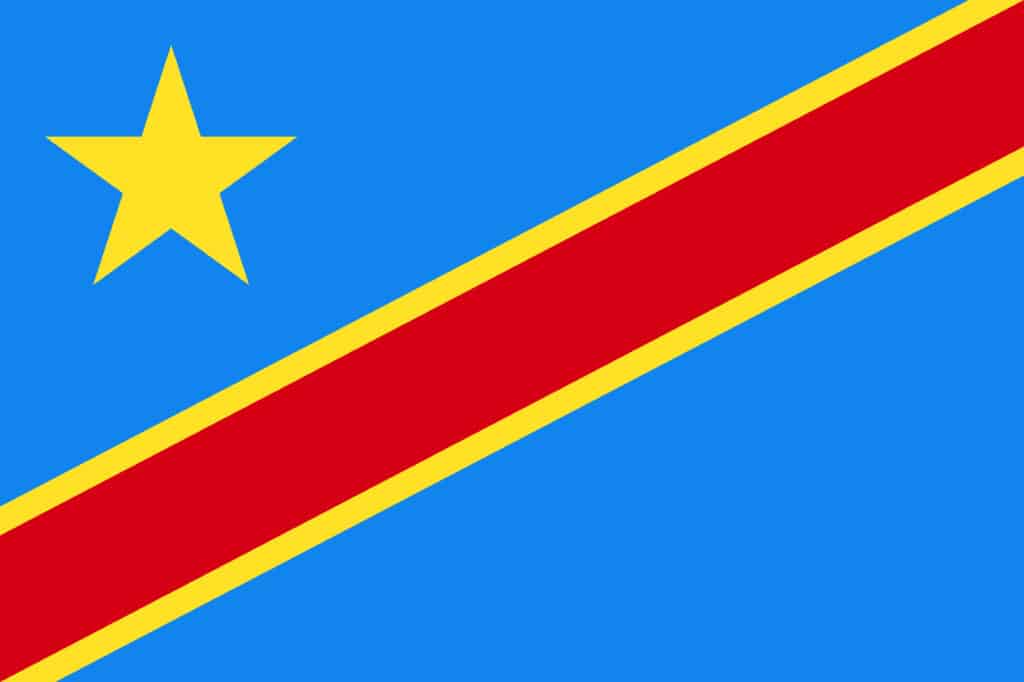
The Democratic Republic of the Congo – also known as the DRC – is a landlocked country located in central Africa. Formerly known as Zaire, the DRC is home to the second-largest rainforest in the world, thanks to its proximity to the equator and the mighty Congo River.
The DRC’s flag has a blue background with a diagonal red and yellow stripe running upwards from the bottom left corner of the flag to the upper right corner. A yellow five-pointed star sits in the flag’s top left corner.
6. Ecuador
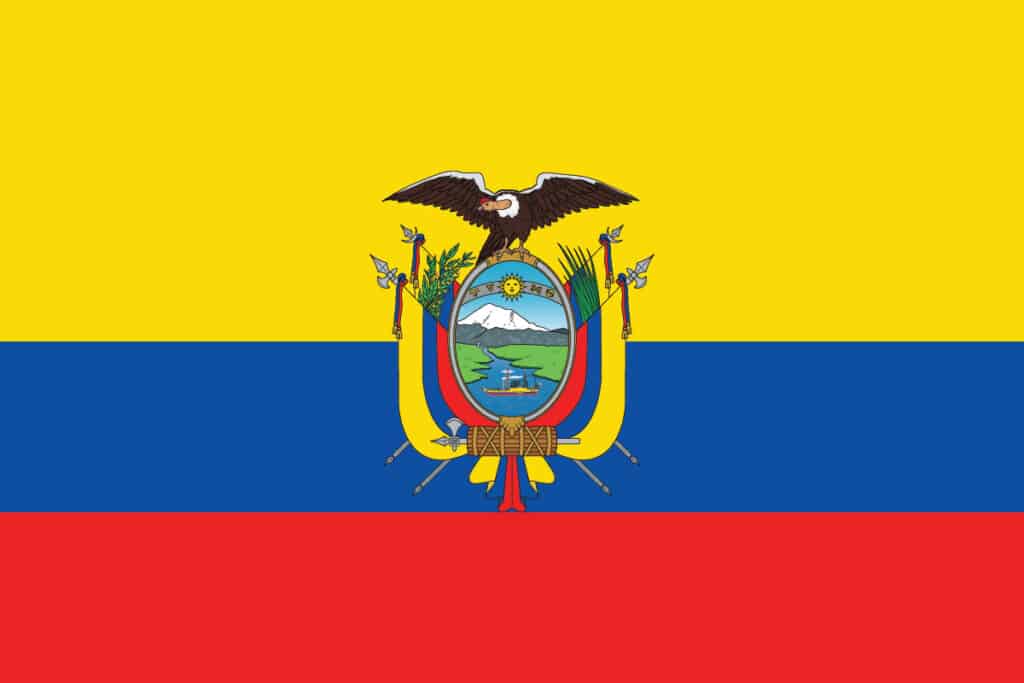
Without the national coat of arms, the Latin American country Ecuador’s flag is identical to that of Colombia. Ecuador’s coat of arms sits in the center of the flag – overlapping the border between the yellow and blue stripes. The yellow stripe represents the nation’s gold deposits, with the blue associated with Ecuador’s coast, and the red honoring those who were killed fighting for Ecuador’s independence.
The ornate seal depicts Mount Chimborazo with a steamboat in the foreground – referencing the first steamboat sailed in Latin America. Ecuador’s national bird, the condor, sits with outstretched wings at the top of the coat of arms.
7. Kiribati
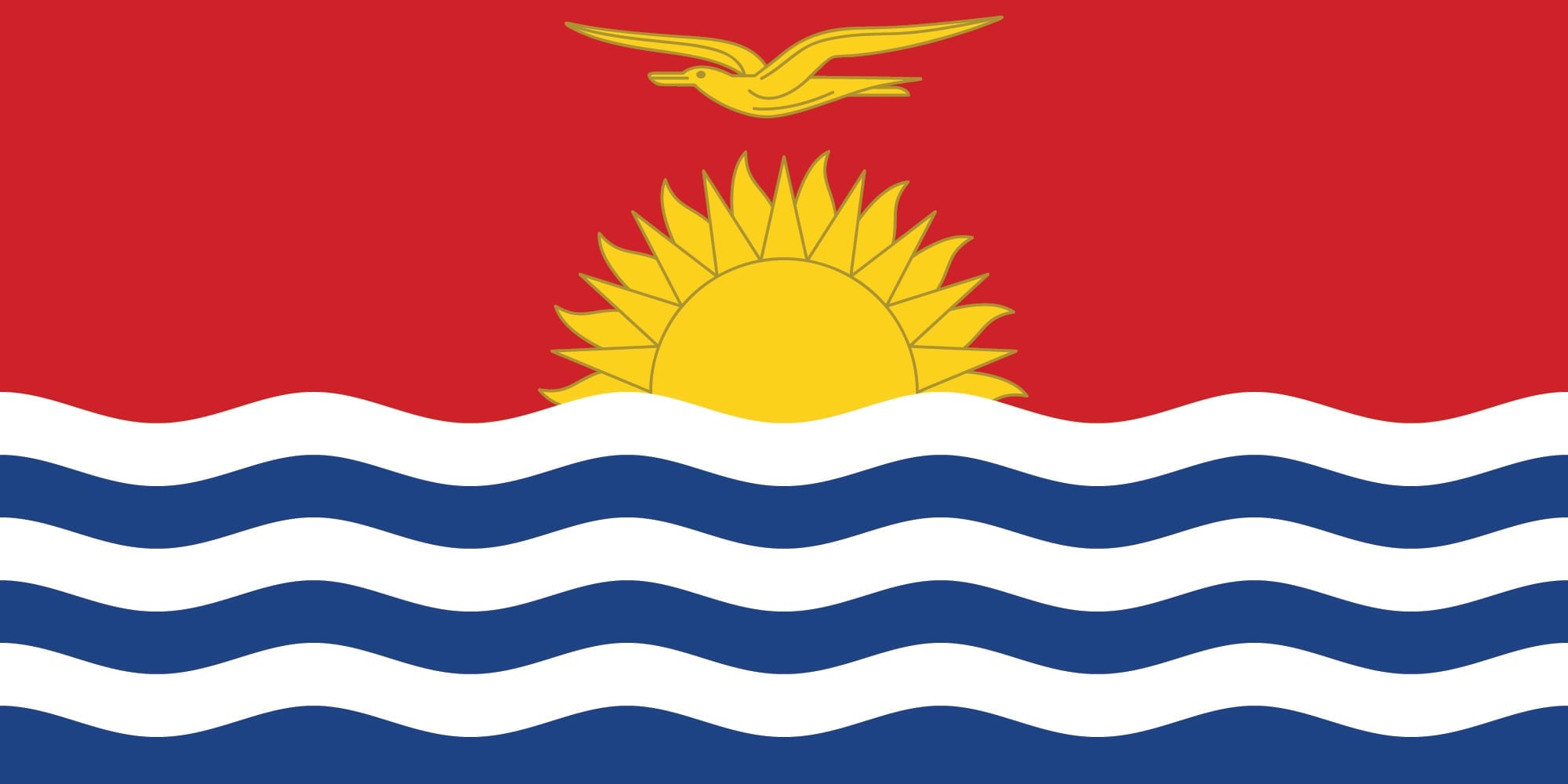
This island nation in the Pacific Ocean contains 33 islands, with only 20 being occupied. Its unique flag has a red sky for the top half with the bottom half composed of blue and white waves. A yellow sun rises over the waves, and above the sun, a yellow seabird flies towards the west.
8. Moldova
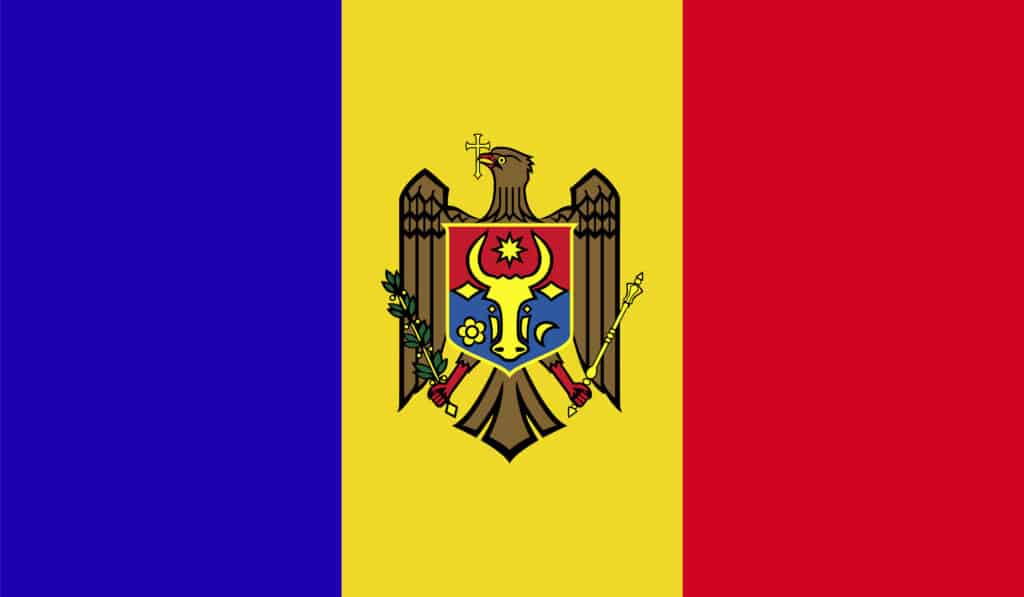
Moldova’s national flag is a vertical triband of blue, yellow, and red. Its coat of arms sits in the flag’s center and depicts an eagle holding a shield displaying an aurochs. An Orthodox Christian cross is clasped in the eagle’s beak, with the eagle’s talons clasping a sword and an olive branch.
Moldova’s flag is inspired by Romania’s flag, symbolizing the two nations’ unity and alliance.
9. Mongolia
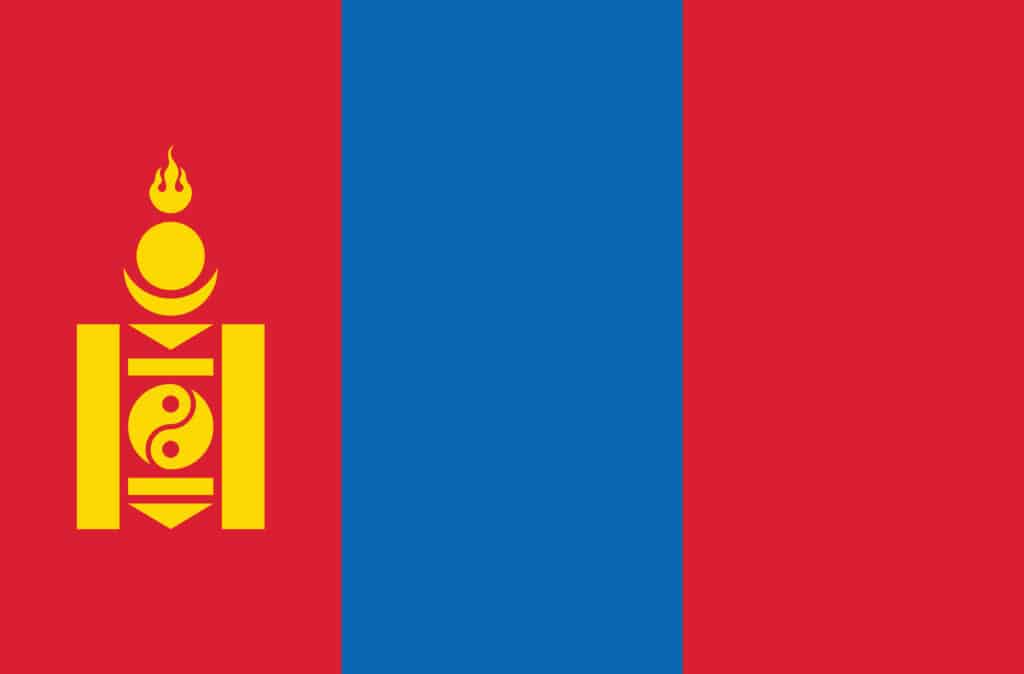
This east Asian country is sandwiched between Russia and China, with Russia to the north and China to the south. Despite its vast size, this landlocked country is one of the most sparsely populated nations by size.
The Mongolian flag is composed of three vertical stripes: a blue center stripe flanked by two red stripes of the same width. The left red band has the yellow Soyombo symbol in the foreground, which represents the four elements: earth, fire, water, and air.
10. Romania
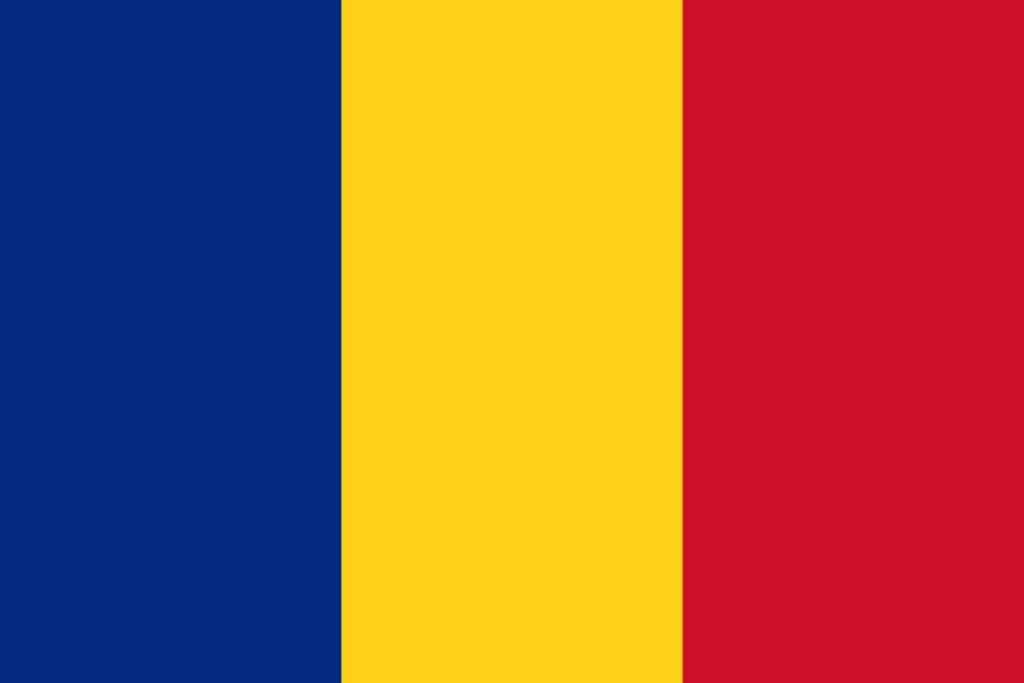
The flag of this eastern European nation has been the subject of controversy since the 1990s due to it being identical to the national flag of Chad. Even in 2004 when Chad’s officials asked the UN to examine the issue, Romanian officials wouldn’t agree to any changes to their national flag.
Romania’s flag represents liberty with blue, justice with yellow, and brotherhood with red.
11. Venezuela
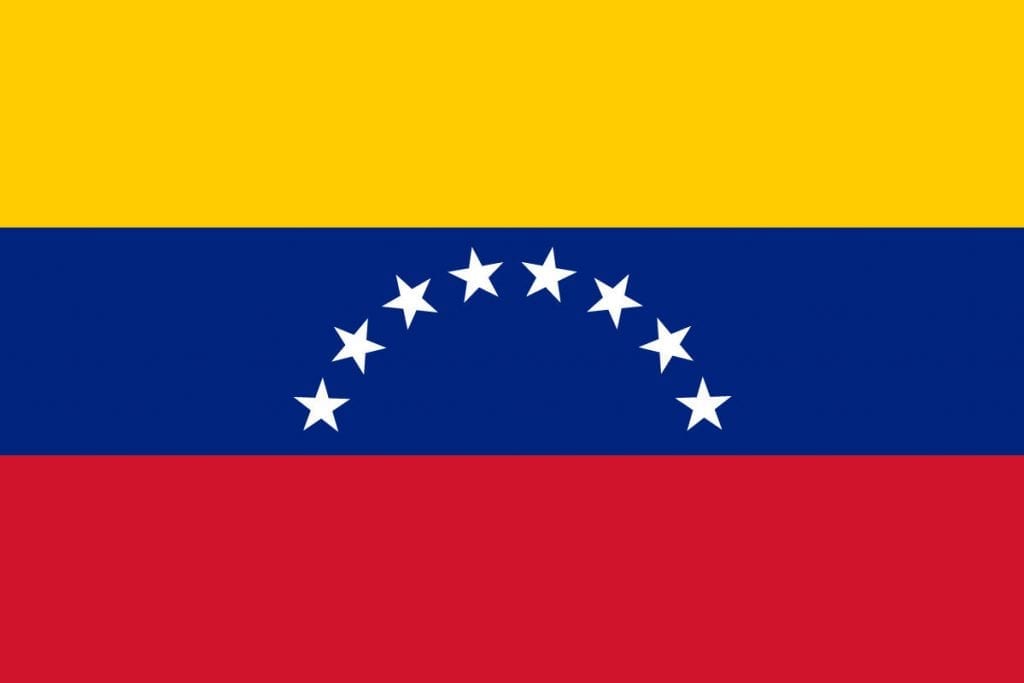
Located on the northern coast of South America, Venezuela borders Colombia and is a tropical nation. Its flag is made up of three horizontal stripes of equal size – yellow at the top, blue in the middle, and red at the bottom. An arch of eight white five-pointed stars sits in the center of the flag against the blue stripe.
A variant of the Venezuelan flag includes the nation’s coat of arms in the flag’s top left corner.
